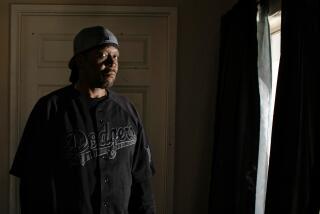Texaco Exec Didn’t Hide Papers, Defense Says
- Share via
WHITE PLAINS, N.Y. — Secret tapes made by a former Texaco Inc. executive charged with obstructing justice show he and a co-defendant acted with no criminal intent, a defense lawyer said at the opening of their trial Wednesday.
“Richard Lundwall taped himself along with the others,” Lundwall’s lawyer, Ethan Levin-Epstein, told a federal court jury. “He knew exactly that when he said something, it was going to be captured on tape.”
But the prosecutor, Elliott Jacobson, asserted the tapes show that obvious crimes were committed.
Lundwall taped meetings in which executives belittled blacks and a lawsuit in which black employees accused Texaco of racial bias. Texaco settled the lawsuit for a record $176 million when Lundwall went public with the tapes in the fall of 1996.
The government then used them as the basis for criminal charges against Lundwall and his co-defendant, retired Texaco Treasurer Robert Ulrich.
Both men are charged with obstructing justice and conspiracy and face up to 10 years in prison if convicted. They have entered not guilty pleas.
In his opening statement, Jacobson told the jury that the tapes describe crimes “so serious, so plain, so obvious that Mr. Lundwall told a reporter that had he been so inclined, he could have committed extortion against Texaco.”
The prosecutor said Lundwall began taping meetings to use as a “bargaining chip” against being laid off in a company downsizing.
The tapes show Lundwall, 56, of Danbury, Conn., and Ulrich, 63, of White Plains, obstructed justice by acting to “shred, conceal and destroy documents that they believed might be harmful to Texaco in the race discrimination lawsuit,” Jacobson said.
The trial is not about the merits of the black employees’ complaints or the merits of affirmative action, but whether Lundwall and Ulrich obstructed justice in connection with the lawsuit.
Levin-Epstein maintained that Lundwall destroyed nothing. He said Lundwall turned over to the other side only material that Texaco believed it had to.
“The entire sort of karma around this lawsuit that surrounded Texaco was, ‘We’re not going to give them anything more than we have to.’ And that’s OK,” Levin-Epstein said.
He added that Texaco’s lawyers gave Lundwall and Ulrich very little guidance as to what documents they were required to turn over.
“The evidence will show that Rich Lundwall did not act with any sort of evil intent,” he said.
He told jurors that Lundwall left the disputed documents in a clearly marked folder outside his Texaco office, where they were found in 1996 after Lundwall had left the company.
Jacobson promised jurors they would hear sections of tape showing “the hostility of these defendants toward the race discrimination lawsuit . . . the scheme to shred documents.”
Judge Barrington Parker has ruled that the jurors may not hear one part of the tapes, a highly publicized segment in which Ulrich belittles ethnic holidays.
More to Read
Inside the business of entertainment
The Wide Shot brings you news, analysis and insights on everything from streaming wars to production — and what it all means for the future.
You may occasionally receive promotional content from the Los Angeles Times.










